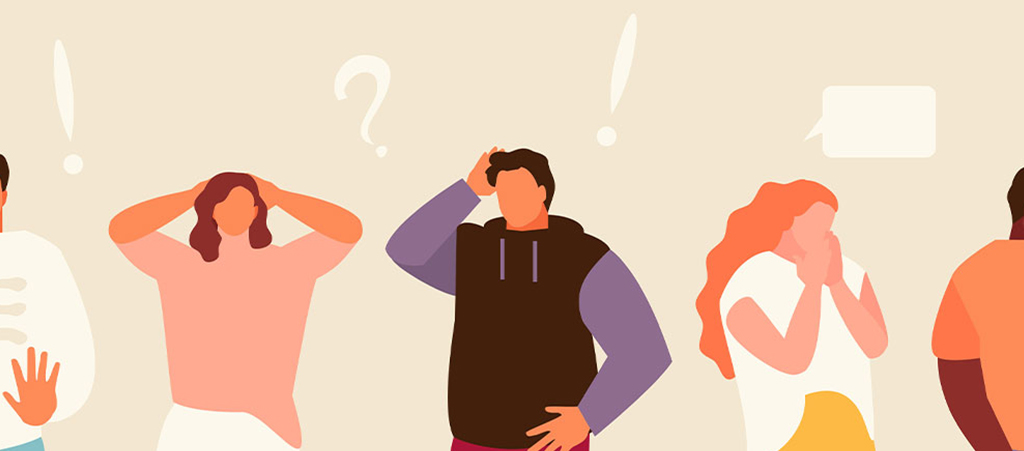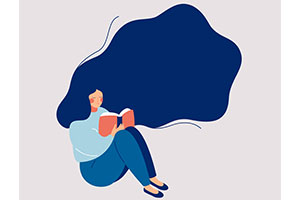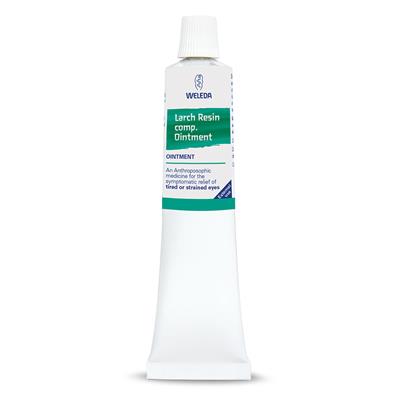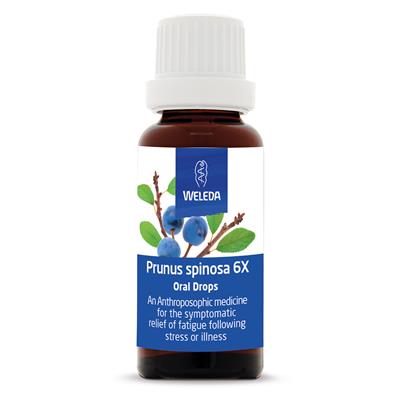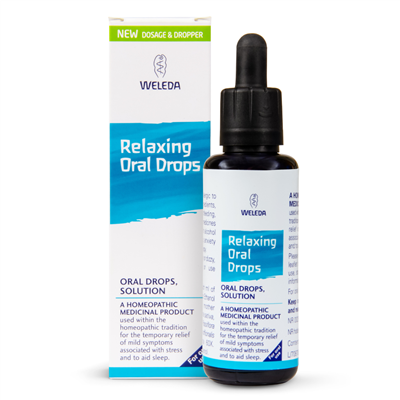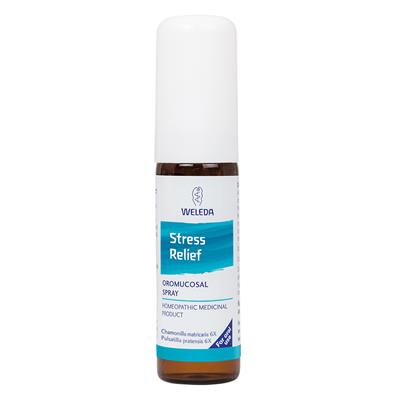
Reducing stress in challenging times
Ten steps to reduce stress and find inner calm by Dr Rosy Daniel06 May 2022

Dr Rosy Daniel, Weleda's Integrative Health Consultant, explains what causes stress and shares useful ways to combat its effects and find inner calm.
We are living through times of great uncertainty and change - over 85% of us say that we feel uncomfortably stressed in both home and work life. Add to that the challenges of post-pandemic life, and it has become more important than ever to commit to making self-care a top priority. We need to build in new healthy habits that will increase our resilience and take us to higher levels of fitness and wellbeing.
To reduce stress, distress and anxiety the keys are:
- To eliminate as many sources of stress as we can, whether outer stressful circumstances or inner self-stressing tendencies.
- Get into a daily practice of aerobic outdoor exercise, yoga, relaxation and meditation.
- Bring calming oils and remedies into our daily routines.
- Release our emotions allowing ourselves to express sadness, fear or anger, aided if need be by Emotional Freedom Technique.
- Learn to adapt to what is going on around us, rather than trying to keep things as they were.
To understand stress better, let’s first look at the different types of stress, and what stress does to our minds and bodies. We can then explore what we can do to unravel all of this and get ourselves back into balance again.
So, what is stress?
We are stressed when we are asking either body or mind to work harder, achieve more or cope with new challenges or uncertainty. At first, extra demand on us is ‘good stress’ which we experience as a healthy challenge to get us up to peak performance. As long as we stay within this healthy challenge zone and take proper rests for our system to restore itself, we will feel both stimulated and rewarded by the good things we achieve. However, if we keep pushing ourselves harder and harder, and especially if we cannot take proper rest to re-balance, that peak performance will plateau and we start to achieve less.
At this stage we feel worse and worse, starting to experience physical symptoms such as a racing heart, sweating, teeth grinding, digestive pains or diarrhoea, fatigue, headaches, tense muscles, menstrual and fertility problems and a tendency to catch every bug that is going around. Mentally we can feel anxious, panicky, scared, distressed, short-tempered and humourless. Our colleagues, partners and children get less and less attention from us as we spiral downwards towards burnout. In this state of chronic stress, we are full of adrenaline and cortisol and vulnerable to infections, autoimmune conditions and even cancer. So, it is vital that we put the brakes on now, take stress seriously and give up the idea that more is better!
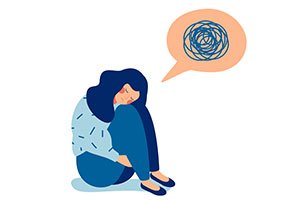
The reason why prolonged stress has such a disastrous effect on us is quite simple to understand. We have an internal nervous system (known as the autonomic system) governing our internal body functions which, in response to challenge, diverts our energies to optimize our brain and muscle function at the expense of our body’s usual housekeeping functions. This ‘fight or flight’ response is vital to get us out of danger, but there is only so long we can stay at this pitch before we have to come out of this activated stress response and allow our bodies to switch back over into restore mode, where digestion, absorption, healing, growth and immune function are favoured. This re-balancing process is essential for health.
We can visualize these two sides of the autonomic nervous system rather like the accelerator and clutch in a car. When we are challenged, up comes the clutch and down goes the accelerator, liberating adrenaline and steroids from our adrenal glands which give us a big boost to respond to the challenge. This literally diverts blood flow away from our abdomen into the brain and muscles, raising our blood pressure and releasing glucose for rapid muscle and brain action. This accelerator side is called the sympathetic nervous system.
Now if you were being chased by a tiger and managed to escape, then the challenge would subside. The accelerator would come off and in would go the clutch, meaning that resources would be switched back to our all-important housekeeping functions. The clutch in this picture is our parasympathetic nervous system.
This clearly works well if the stress stops, and our system returns to restorative mode. But what happens when the stress does not stop? The result is the widespread problem of stress-related illness that we are currently seeing - caused when our hearts, blood pressure, kidneys, adrenal and thyroid glands, lungs, skin and immune systems become over-stimulated and completely exhausted.
The more we ignore the symptoms of stress, the worse things become and the harder it is to find our way back again. The average time off work for a stress-related breakdown is 28 days, but this can easily go up to three months, with a major loss of confidence and self-esteem to boot. If you recognize that this is happening to you, take charge now and seek the help that you need to address things.
What are the different types of stress?
It is helpful to think of stress as coming from two different sources: external – such as worrying about job security – and internal – when we are driving ourselves too hard with all kinds of unhelpful learned patterns and beliefs. These can become quite unconscious and habitual, to the point that we cannot even remember why we are driving ourselves so hard.
Stand back and take a look. To what extent are you in the grip of self-stressing tendencies such as perfectionism, approval seeking or competitiveness? Step even further back, and ask yourself where such tendencies came from? There are hosts of messages that we take on when young which can produce relentless internal pressure. As well as the constant messages that we are receiving from advertising and social media about how we should look, feel and live.
There is another kind of stress too, which is social stress, where we are either being bullied or controlled in our home context or badly managed at work. So this too must be addressed so we can be free of the sense of continual threat.
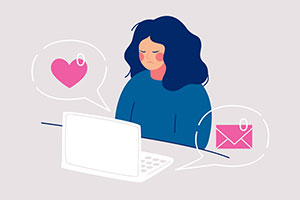
How big is the stress problem?
So here are some facts from the 2018 Forth survey to appreciate the size of the problem. Amongst 2000 diverse UK residents, researchers found that:
- 85% of UK adults are experiencing stress regularly.
- Over a third of British residents feel stressed for at least one full day per week.
- 54% of people that are affected by stress worry about the impact it is having on their health.
- Young adults are experiencing the most stress – on average 12 full days of stress per month.
- Women are more stressed than men, experiencing three more days of stress than men.
What else do we know about stress from the holistic health perspective?
Doctors are quite clear about the relationship between stress and heart, blood pressure and mental health problems, but how much more deeply does stress affect us?
- When stressed, we think far less clearly, achieving less not more.
- Stress affects our allergic thresholds meaning that asthma, food allergies or dermatitis can all become triggered by periods of stress.
- Stress also triggers autoimmune problems like colitis, eczema, rheumatism and thyroiditis which can flare when we are stressed.
- Stress can affect your sex hormone levels with an impact on your fertility and libido due to high cortisol.
- Stress makes us immune-compromised, as adrenaline and cortisol paralyse our white cells, leaving us open to infection and cancer.
- Continued stress can result in adrenal fatigue, thyroid fatigue and onward into chronic fatigue syndrome.
- Chronic stress can lead to metabolic problems including insulin resistance, diabetes, obesity, arterial disease and high blood pressure.
- High stress levels cause us to lose calcium from our bones, contributing to osteopenia and osteoporosis.
- Pressure to perform and achieve highly at school is teaching our children stress from an early age.
- High levels levels of insecurity and self-consciousness amongst young people due to social media pressure is a cause of extreme stress.
- Stress can become addictive, as we get hooked on the adrenaline buzz and can become unable to stop, rest and restore ourselves.
It’s so important to address our stress ‘habit’. Here are my ten steps to tackling stress:
- Step 1 Make time to connect with nature. Boost your sense of wellbeing with a daily walk or bike ride in the great outdoors to catch some daylight or sunshine. Even if it’s cold, wrap up well and try to get a brisk walk or a few minutes outside doing something active like tidying up the garden. When the sun does come out, expose your hands and face for 15 minutes to top up vitamin D levels.
- Step 2 Ensure that you get at least 45 minutes of aerobic exercise daily, either outside, inside online or at a sports centre. Remember that there are dance classes as well as sporty activities that can make it more fun.
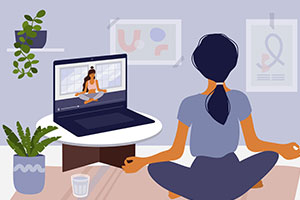
- Step 3 Commit to a weekly yoga class and carry on your practice daily. This will re-set your nervous system so that achieving balance becomes the norm. Contact the British Wheel of Yoga to find a great teacher in your area. Look for a class that integrates postures, relaxation, breath work and meditation equally.
- Step 4 Practice relaxation and meditation daily. The Headspace app is a great tool to learn mindfulness techniques. Go further with the ‘Heal Yourself’ CD by Dr Rosy Daniel. This has relaxation, yoga and breathing exercises, stillness and compassionate heart opening meditation.
- Step 5 Improve your sleep. Stop all work and media activity by latest 8pm and begin the process of unwinding with a candlelit Lavender Relaxing Bath Milk along with your favourite relaxing music or relaxation track.

- Step 6 Simplify your life. If stressed, cut down your activity levels considerably. Learn to say no. Expect less, do less and buy less. Do not listen to advertising or aspirational programmes that are designed to make you want more. Don’t compare yourself with others; you are uniquely you.
- Step 7 Give up your tendency to over give, and learn to receive. Learn to accept help, love, compliments, and to ask for the help you need when tired or anxious. Learn to focus on meeting your own needs first, and empower others to do the same.
- Step 8 Set aside time for yourself in your diary at the beginning of each month. Plan a couple of free evenings and one free day per week that you hold onto for yourself. Use these times to relax, do your favourite things, and connect with those that you love.

- Step 9 If stress or anxiety is severe, seek therapeutic help. For example a professional massage from an experienced Weleda Wellbeing Advisor. Or a craniosacral therapist can work to directly stimulate the parasympathetic nerves in your neck and sacrum to get you into deep restore mode.
- Step 10 Engage a Health Creation Mentor to help you identify your internal stress drivers. Take a deeper look at the ways you stress yourself and change these harsh habits for kind, gentle, supportive ones that enable you to relax, be true to yourself and enjoy the beauty of your life.

Relaxing Oral Drops
A calming remedy for the temporary relief of mild symptoms associated with stress and to aid sleep, especially useful when thoughts keep churning in your head and you’re having trouble switching off from the stresses and strains of a difficult day, or if anxiety wakes you in the night and you can’t get back to sleep.
Stress Relief Oral Spray
Sometimes a healthy level of stress can become unhealthy. This homeopathic oral spray is formulated to ease mild stress, irritability and tension, and is a combination of Pulsatilla together with calming Chamomile from our own Weleda gardens.
Prunus Spinosa 6X Oral Drops
Formulated for the symptomatic relief of fatigue following stress, these natural drops are made from the fresh leaf tips of biodynamically grown blackthorn, hand picked from hedges at Weleda’s Derbyshire gardens. Blackthorn, or Prunus spinosa, is recognised for its remarkable vitality, and is traditionally selected to help strengthen and stimulate the life forces where these have been depleted through ill health. Take 5-7 drops in a little water, three times daily, until symptoms improve.
Arnica Massage Balm
Stress and anxiety can result in physical tension, for example in neck and shoulders. Whilst gently massaging away muscular pain, the uplifting rosemary and soothing lavender fragrance gets to work holistically on body and mind.
Larch Resin Comp Ointment
A handy remedy for the area around the eye – to apply to the skin, muscles and supporting tissue – which can feel strained and tired at times of extreme stress. Gently massage a little ointment around the eyes and on the eyelids and temples. Made with pineapple extract and lavender oil, this is a wonderfully soothing ointment.
Relax Aroma Shower
Soothe your senses with this subtle, relaxing blend of aromatic lavender, bright bergamot and enveloping, warm, woody vetiver, that invites you to find your inner balance, comforting mind and spirit.
Lavender Relaxing Bath Milk
An aromatherapeutic, soothing fragrance to calm and balance the nervous system and revive the spirits – your bedtime bath treat, especially at times of stress or agitation.
Shop Weleda self-care products:
Larch Resin comp. Ointment 25g
Item No.
205013
£15.95
Add to basket
Low Mood & Stress Relief Tablets
Item No.
207030
£10.95
Add to basket
Prunus spinosa 6X Oral Drops 25ml
Item No.
206037
£11.49
Add to basket
Relaxing Oral Drops 50ml
Item No.
206039
£12.95
Add to basket
Stress Relief Oromucosal Spray 20ml
Item No.
303003
£13.25
Add to basket
Always seek medical advice if your symptoms persist. Always read the label.

